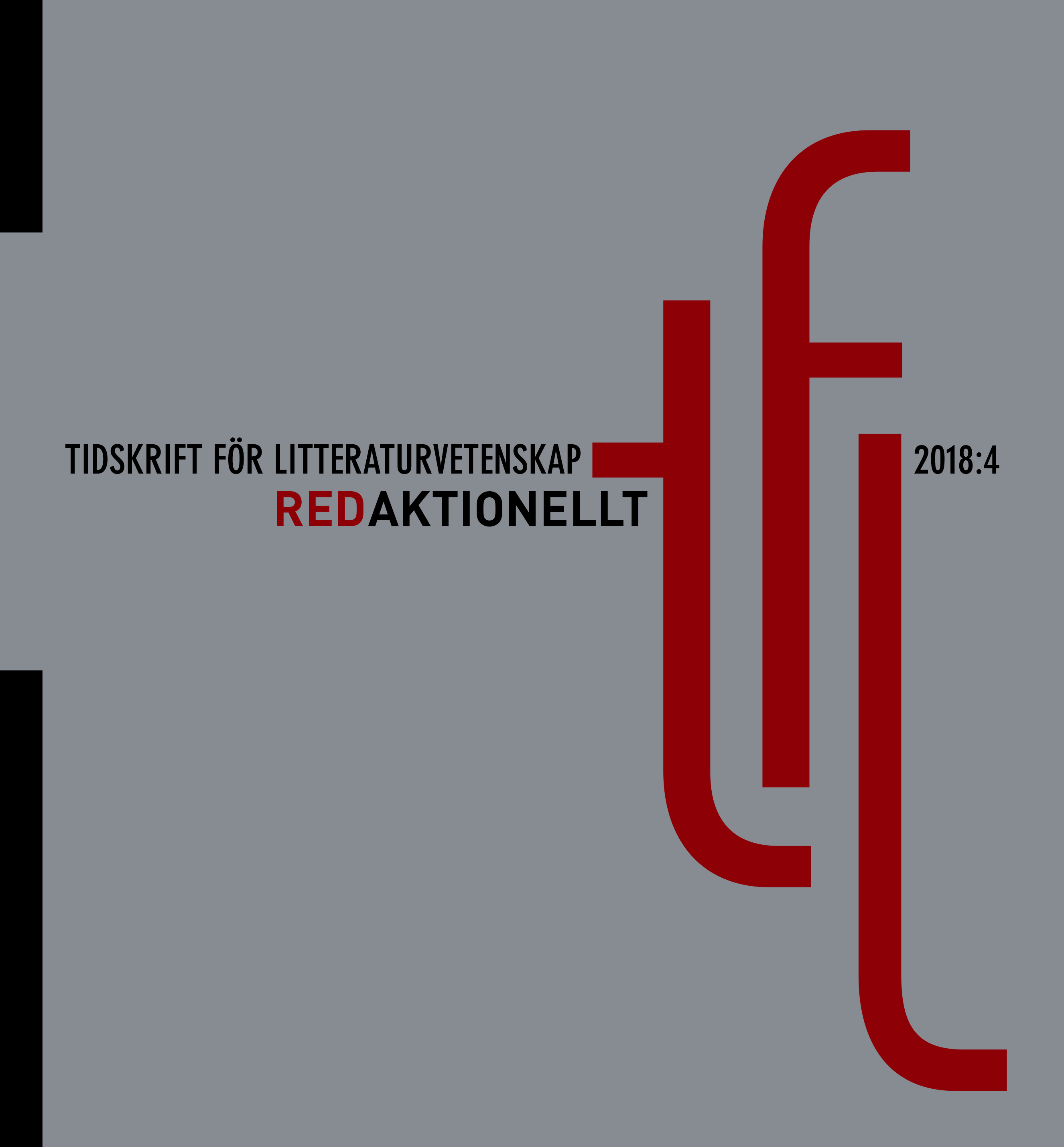Infrastrukturalisme og redaktionel praksis
Om litteraturens liv efter redaktørens død
DOI:
https://doi.org/10.54797/tfl.v48i4.7462Nyckelord:
Editorial practice, literary infrastructure, micropublishing, Instagram poetry, literary journalsAbstract
Infrastructuralism and Editorial Practice. The Life of Literature after the Death of the Editor
This article discusses the editorial practices of literary journals and other publishing platforms, and the new shapes they take in the altered media ecologies of contemporary literature in Scandinavia. Inspired by American media theorist John Durham Peter’s call for a new academic paradigm, “infrastructuralism”, focused on the mundane, underlying structures that make our societies work without calling attention to themselves, it examines how the dissolving of collective information infrastructures and traditional literary institutions affect editorial work, and how new editorial practices can draw attention to and affect functional literary infrastructures and even establish new ones. From a conceptual discussion of the implications of the “editorial” and its relation to “the curatiorial”, a recent buzzword, and a recuperation of a well-known critique of the editor as a historical patriarchal figure, it establishes an infrastructural angle upon recent changes in the Danish literary scene, specifically the crisis of the (printed) literary journal, and the recent rise in micropublishing ventures defining themselves in direct opposition to the professional publishing industry. In a questioning of the social imbalance implied in the familiar avant-garde argument that seeks out the future of progressive literary practices in explicitly underground or “experimental” practices, especially in times when the large, collective infrastructures designed to disseminate diverse cultural products to a broader audience are disintegrating, it finally discusses the contemporary Instagram phenomenon Rupi Kaur, who merges poetry, minority identity and pop culture in a poetic practice that speaks to millions of followers worldwide, as a different example of the future of literature after the reign of the editor has ended. In conclusion, it suggests that a critical merging of the experiences from micropublishing with those of social media macropublishing is needed in order to understand and restore the value of conscientious editorial work to the future infrastructures of literature.
Nedladdningar
Downloads
Publicerad
Referera så här
Nummer
Sektion
Licens
Författaren/författarna behåller copyright till verket






